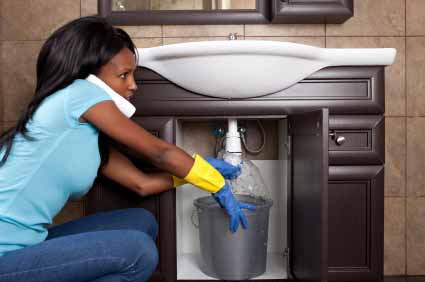How to Address the Common Water Heater Emergency Challenges
How to Address the Common Water Heater Emergency Challenges
Blog Article
Are you trying to locate information on Is Your Water Heater Leaking??

A water heater is one of the most important fundamental home appliances that can be located in a residence. With hot water heater, you don't need to go through the anxiety of heating water by hand whenever there is a demand to wash, wash, or the meals. There is always a possibility that your water heating unit would certainly act up as with the majority of mechanical devices.
It is very important to keep in mind any kind of little breakdown as well as tackle it promptly prior to points leave hand. A lot of times, your hot water heater starts to malfunction when there is a build-up of sediments as a result of continuous usage. As a preventative measure, routine flushing of your water heater is recommended to prevent debris accumulation and protect against useful failure.
Usual hot water heater emergencies and also how to deal with them
Leaking hot water heater tank.
In this scenario, you should transform off your water heater, permit it to cool down, and also meticulously look for the resource of the problem. At times, all you require to do is to tighten a couple of screws or pipeline connections in instances of small leaks. If this doesn't function and the leakage lingers, you might require to use the services of a professional for a suitable substitute.
Rising and fall water temperature.
Your hot water heater can begin producing water of various temperature levels generally ice cool or hot hot. In this scenario, the first thing you do is to guarantee that the temperature is readied to the preferred level. If after doing this, the water temperature maintains altering during showers or various other activities, you might have a damaged thermostat. There may be a need to change either the heating or the thermostat device of your hot water heater.
Inadequate hot water
It may be that the water heater can't support the hot water need for your house. You might update your water heating system to one with a bigger ability.
Blemished or odiferous water
When this occurs, you need to know if the problem is from the water or the storage tank resource. If there is no funny odor when you run cool water, then you are specific that it is your water heater that is defective. The odiferous water can be caused by rust or the build-up of germs or sediments in the water heating unit storage tank.
Verdict
Some homeowners neglect little caution and also minor faults in their hot water heater unit. This only leads to further damage and a possible complete break down of your home appliance. You must take care of your water heater faults as soon as they come near stay clear of even more expenses and also unneeded emergency difficulties.
With water heaters, you don't need to go via the anxiety of home heating water manually every time there is a need to take a bathroom, do the laundry, or the meals. Your water heating unit could begin generating water of various temperatures normally ice cool or hot warm. It might be that the water heating unit can not support the hot water demand for your house. If there is no amusing smell when you run cold water, then you are certain that it is your water heater that is defective. The odiferous water can be created by corrosion or the accumulation of germs or sediments in the water heating system storage tank.
Common Water Heater Issues and What You Should Do
What Type of Water Heater Do You Have?
Before we begin it’s first important that you identify the type of water heater you have on your property. There are two main types of water heaters out there: conventional and high efficiency.
Both of these types of products typically use either gas or electricity to heat power. There are also solar water heaters that use a thermal collector on the roof or yard to heat the water.
While these models are not as common, they can cut heating costs in half. In this article, we will focus on conventional and high efficiency.
How Do My Electric and Gas Water Heater Work?
Though they look similar, electric and gas water heaters work very differently. It’s important to know their basic function because often problems can be specific to the heating source.
In the electric model, a thermostat on the side of the machine detects the temperature of the water in the tank. When the temperature needs to rise electricity flows to a heating element suspended in the water.
Gas models also use a thermostat device — typically with a mercury sensor at the tip and an additional sensor called a thermocouple. The thermocouple detects whether the pilot light is on and controls the flow of gas.
When the thermostat drops below the appropriate level gas is released which becomes ignited by the pilot light. The flame heats the bottom of the water tank which causes hot water to rise and cold water to drop.
This natural circulation continues until the water reaches the desired temperature. Then, the thermostat triggers the gas control valve to shut off the flow of gas.
What Are the Most Common Issues and How Do You Fix Them?
https://happyhiller.com/blog/common-water-heater-issues-and-what-you-should-do/

I stumbled upon that review on Is Your Water Heater Leaking? when doing a lookup on the search engines. Appreciated our review? Please share it. Help other people locate it. Thank you for your time invested reading it.
Book Appointment Now Report this page